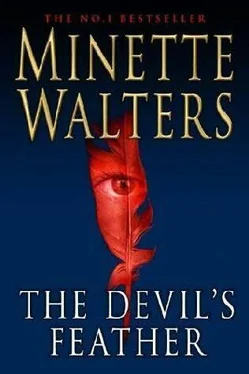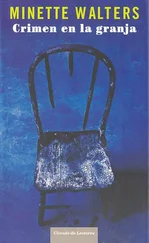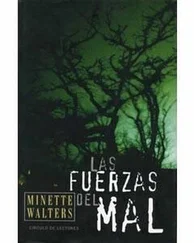“If you do, you won’t get it, Ms. Burns. I have a long memory.”
“I don’t expect to meet you again, so the situation won’t arise.”
He turned away. “I wouldn’t bet on it,” he said in ironic echo. “For people like us the world’s smaller than you think.”
As I watched him walk to the gate, I was curious about the name I’d glimpsed on the envelope, “Mary MacKenzie,” and the last line of the address, “Glasgow.” It flipped a switch in my memory. It was Kinshasa where I’d seen him before-he’d been part of a mercenary group fighting for Laurent Kabila’s regime-and the name he’d been using then was Keith MacKenzie.
I must have wondered why he’d assumed an alias, and how he’d acquired a passport as John Harwood, but it wouldn’t have been for long. I spoke the truth when I’d said I didn’t expect to meet him again.
TWO YEARS LATER, in the spring of 2004, I recognized him immediately. I was on a three-month assignment to Baghdad to cover the rapidly deteriorating situation in Iraq, which was about as long as any newswire journalist could take the stress of the unfolding shambles. Editors around the world were demanding instant copy since the publication of photographs showing US soldiers abusing prisoners in Abu Ghraib jail.
It was a dangerous time for Westerners. Civilian contractors were being targeted for hostage-taking and execution, and private security firms were recruiting ex-soldiers by the thousands to bodyguard them. Iraq had become a bonanza for mercenaries. They were paid double what they could earn anywhere else, but the risks were enormous. Shoot-outs between private security agents and Iraqi insurgents were common, but they rarely hit the headlines. Discreet veils were drawn over the incidents to protect client confidentiality, for as often as not the client was the US government.
In the wake of Abu Ghraib, with the coalition lurching from one public relations disaster to another, a charm offensive was launched to mitigate the damage done by the “torture” photographs. This involved bussing the press corps to different types of detention and training facilities with promises of full and free access. Being cynical hacks, few of us expected to hear anything that wasn’t “on message,” but we went along for the ride just to escape the claustrophobia of our fortress hotels.
There was no venturing out on the streets of Iraq alone at that time, not if we valued our lives and freedom. With an al-Qaeda bounty on every Western head-and women being targeted as potential “sex slaves” after Lynndie England’s part in the prisoner abuse-press accreditation was no protection. Baghdad had been dubbed the most dangerous city in the world and, rightly or wrongly, women journalists saw rapists round every corner.
One of these PR tours ended at the police academy, where they were pushing out five hundred newly trained Iraqi policemen every two months. The coalition authorities had briefed their people well, and we received the same human rights spiel at the academy as we’d heard everywhere else. The buzz phrases of the moment were: “in accordance with the law,” “clarified chains of command,” “absolute commitment to humanitarian principles,” “proper checks and balances.”
They were fine-sounding sentiments, and honestly meant by the smart young Iraqi who pronounced them, but they were no more likely to prevent future abuse than the Nazi Nuremberg trials or the inquiry into the My Lai massacre in Vietnam. If I’d learnt anything from my forays into the world’s conflicts, it was that sadists exist everywhere and war is their theatre.
Thoroughly bored, I glanced through an open office window as the press crocodile wound around the main building. In the centre of the room, several uniformed dog-handlers, with Alsatians on leashes, faced a man in civvies with his back to me. I’d have known MacKenzie’s bullet head anywhere from the winged scimitar tattoo, but he turned as his listeners’ attention was drawn by the voice of our escort and there was no mistaking his face. More out of surprise than any desire to speak to him, I came to a halt, but if he recognized me he gave no sign of it. With an impatient scowl, he reached for the handle and jerked the window shut.
I caught up with the guide and asked him about the civilian with the shaven head. Who was he and where did he fit into the chain of command? Was he training Iraqis to handle dogs? What were his qualifications? The guide didn’t know, but said he’d find out before I left.
Half an hour later, I learnt that MacKenzie was now calling himself Kenneth O’Connell and was a consultant with the Baycombe Group-a private security firm that was providing specialist training at the academy. When I requested an interview, I was informed O’Connell was no longer on the premises. I was given a phone number to call the next day. As I made a note of it, I asked the Iraqi what O’Connell’s speciality was. Control and restraint techniques, he told me.
The phone number turned out to be the Baycombe Group’s main office, which was inside a fortified compound near the bombed-out United Nations headquarters. I was given the immediate run-around when I asked for an interview with O’Connell, and it took a further week to set up a general interview with BG’s spokesman, Alastair Surtees. I assumed MacKenzie was making his point about “good turns” and, if so, I was supremely indifferent to it. In terms of what I planned to write-a hard-hitting piece on the calibre of personnel these firms were recruiting-I expected Surtees to be a lot more forthcoming than a Glaswegian bully who changed names whenever it suited him.
I was wrong. Surtees was urbane and courteous, and as tight as a drum when it came to giving out information. He told me he was ex-British army, forty-one years old, and had reached the rank of major in the Parachute Regiment before deciding to join the private sector. He reminded me that the agreed interview was thirty minutes, then filled the first twenty with a slick presentation of his firm’s history and professionalism.
I learnt very little about BG’s sphere of operations in Iraq-other than that they were wide-ranging and almost exclusively concentrated on the protection of civilians-and a great deal about the type of men that BG recruited. Ex-soldiers and policemen of the highest integrity. Tired of this spin, I asked if I could speak to an individual operative in order to hear his story firsthand.
Surtees shook his head. “We couldn’t allow that. It would make him a target.”
“I wouldn’t use his real name.”
Another shake of the head. “I’m sorry.”
“How about Kenneth O’Connell at the police academy? He and I know each other, so I’m sure he’ll agree to talk to me. The last time we met was in Sierra Leone…the time before in Kinshasa. Will you ask him?”
The request clearly came as no surprise to Surtees. “I believe your information’s out of date, Ms. Burns, but I’m happy to check.” He eased a laptop across the desk and punched up information on the screen. “We did have an O’Connell at the academy, but he was transferred a month ago. I’m afraid you were wrongly advised.”
I shook my head. “I don’t think so. He was there a week ago because I saw him.”
“Are you sure it was Kenneth O’Connell?”
It was such an obvious question that it made me laugh. “No…but that’s the name I was given for the man I saw. In Freetown he was calling himself John Harwood, in Kinshasa, Keith MacKenzie.” I lifted an amused eyebrow. “Which makes me wonder how you can vouch for his integrity. What name did you vet him by? He’s had at least three to my knowledge.”
“Then it wasn’t O’Connell you saw, Ms. Burns. He was wrongly identified to you.” He tapped at his keyboard. “We have no Harwoods or MacKenzies on our books, so I suspect the man you saw is with another firm.”
Читать дальше












